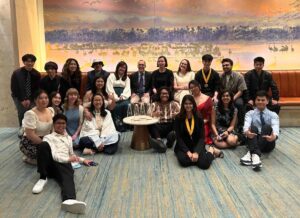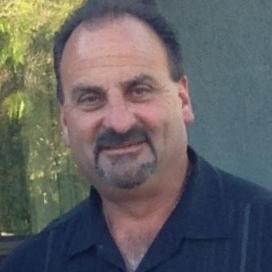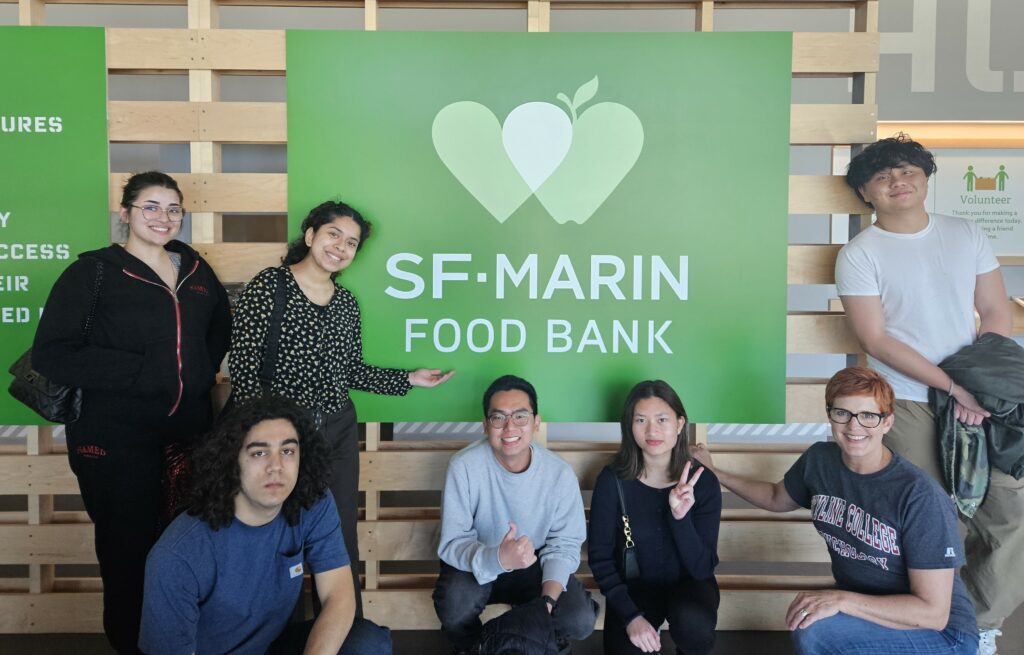Skyline College students Julio Lau, Dunhoja Robbins-Bishop, and Julia Rogers were selected to present their original, undergraduate research at this year’s Bay Honors Consortium Symposium, which will be held on Saturday, May 6th, 2023 at Stanford University. The Bay Honors Consortium (BHC) is made up of Honors Directors and Counselors from 16 Northern and Central California Community College Honors Programs. The BHC’s mission is to promote and support Honors Programs and host our annual Honors Research Symposium.
Julio, Dunhoja, and Julia are current Skyline College students who are presenting research they’ve completed with their faculty-mentors in the Honors Transfer Program. Professors Michael Cross, Jennifer Merrill, and Lindsey Ayotte mentored Julio, Dunjoha, and Julia, respectively.
I asked the students to share information about their projects and upcoming presentations.
JS: What is your research project about?
Dunhoja Robbins-Bishop: I created The Black Maternal Advocacy Project so that I could spread awareness about how medical racism and outdated medical practices within the United States is contributing to the significant increase of African American women, dying from pregnancy related complications and diseases. I have been researching the main conditions and complications that women face when going through with a pregnancy as well as the medical practices that are being done or aren’t being done. I am using my own personal experience in a way that will help people understand the disparities that women face every day and to also make the information that I have researched make more sense to those who don’t have a background in the medical field and haven’t been exposed to this issue. My goal is to point out the lack of awareness and to try and provide possible solutions to help increase the amount of awareness on the subject because it affects any and everybody no matter their race, gender or socioeconomic background.
Julio Lau: The Trickster character is present in many cultures around the world that are seemingly unrelated. The Trickster is part of human nature and it’s relevant now as it was in the past. Loki, like other trickster characters, represents the fundamental problem with ideals, suggesting that dualities like good and evil hide the complexity and contradictions of an ever-changing society; as a result, the trickster is a crucial figure for the contemporary world because it highlights the messiness and complexity of human existence, allowing us to improve as individuals and as a society by being more realistic and honest with ourselves about our oversimplified conceptions about the world we live in today.
I created a literature review mainly focused on classic Norse mythology (prose edda and poetic edda). I also researched other trickster characters present in other mythologies, and the appearance of Loki in modern popular culture.
Julia Rogers: I propose to research the health disparities for African Americans in the United States in order to spread awareness of this issue related to racism and public health. My research question is: Why is the United States health system failing to provide the same quality of care for African Americans as for whites? My research uncovers the century-old history of African Americans being abused by medical professionals.
In my speech, I explain the understandable reasons for African Americans’ suspicion of the health system, starting from the cruel medical practices done on slaves to the present-day experiences that blacks have with race-driven pain diagnoses and the COVID-19 pandemic.
Finally, I elaborate on the current fight for inclusivity in healthcare. This includes making illustrations of black people in medical textbooks, collecting data on racial biases, and addressing disparities to end misdiagnoses of black patients.
JS: What excites you the most about presenting your research at the Bay Honors Consortium?
Julia Rogers: I am most excited for the networking opportunities at the research symposium. I expect there to be some well-known scientists at the conference and would like to connect with them.
Julio Lau: It’s exciting to be able to present at Stanford. Presenting my research is a great opportunity to practice my public speaking skills, as well as share the knowledge I’ve acquired from my classes at Skyline. I’m excited to be presenting because it will be the culmination of the hard work I’ve been putting into this project. I’m also thankful to all the instructors who supported me throughout the process of research and preparation for the symposium because I wouldn’t be here if it weren’t for them.
Dunhoja Robbins-Bishop: As a first-generation student, this is an opportunity of a lifetime. When I submitted my application, I truly thought that I was not going to get selected for the Honors Consortium because this is the first time, I’ve ever conducted my own research project. I’m so excited that I get to bring awareness on this topic at one of the top schools in the country because I know that someone in that crowd is going to have an impact left on them that might make other people do research into this topic themselves so that we can get as much awareness on this topic as possible. I feel like this is something that will help future generations, because if more research is done in this manner, our children and their children won’t have to face the health disparities that we face today as this problem is an epidemic that needs to be put to rest before more damage is done. I’m also excited because this is something that I can look back on because being a teen mom, there are a lot of odds that are stacked against you, and it helps me to understand that no matter what obstacles are thrown at you, you can accomplish anything. I can’t wait to look back on this when I get older and show my son the things that I accomplished and the shared experiences and memories we will make along my academic journey.
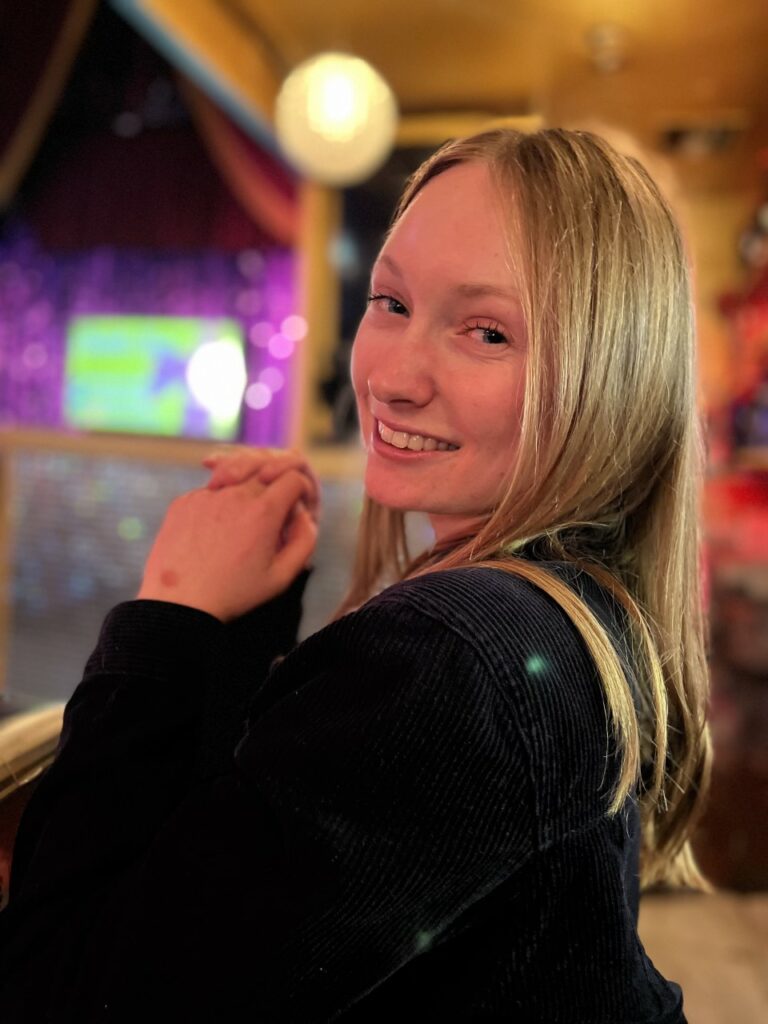
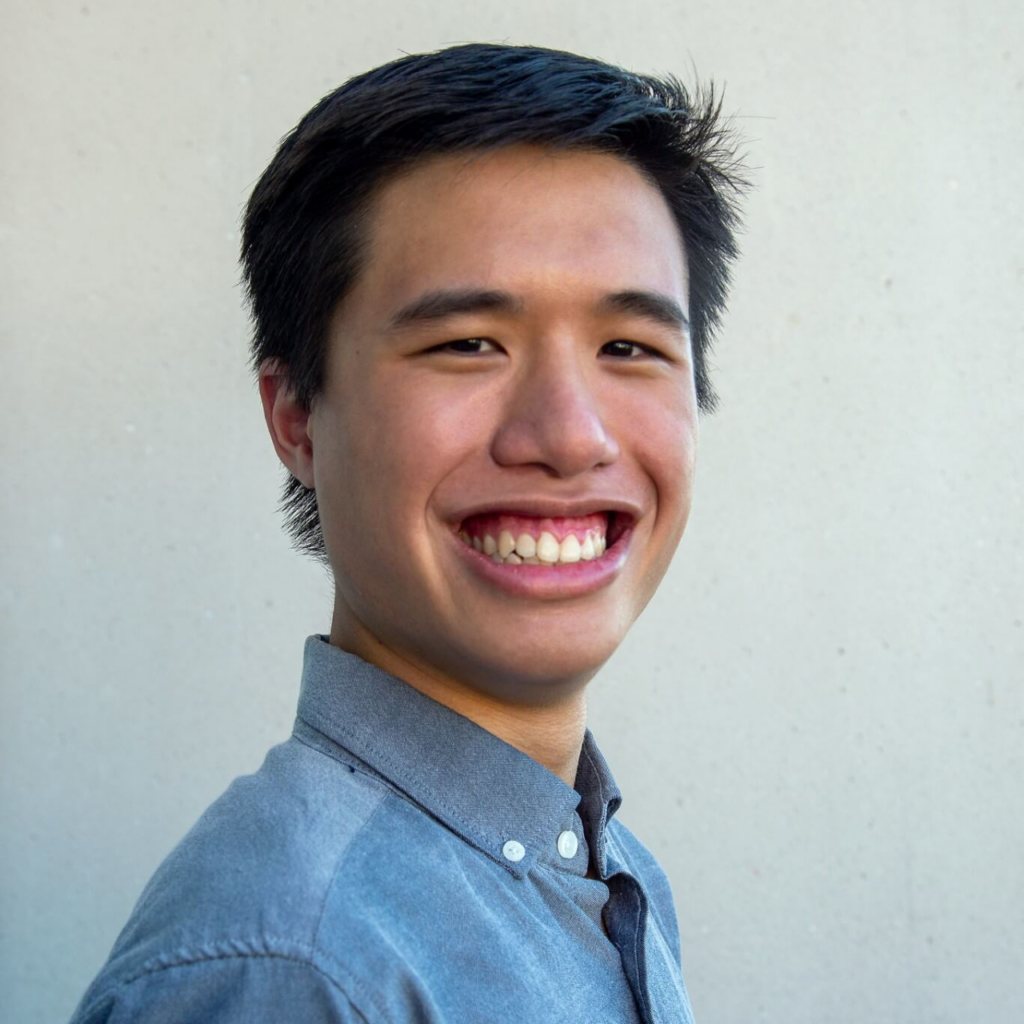

Article by by Janice Sapigao


